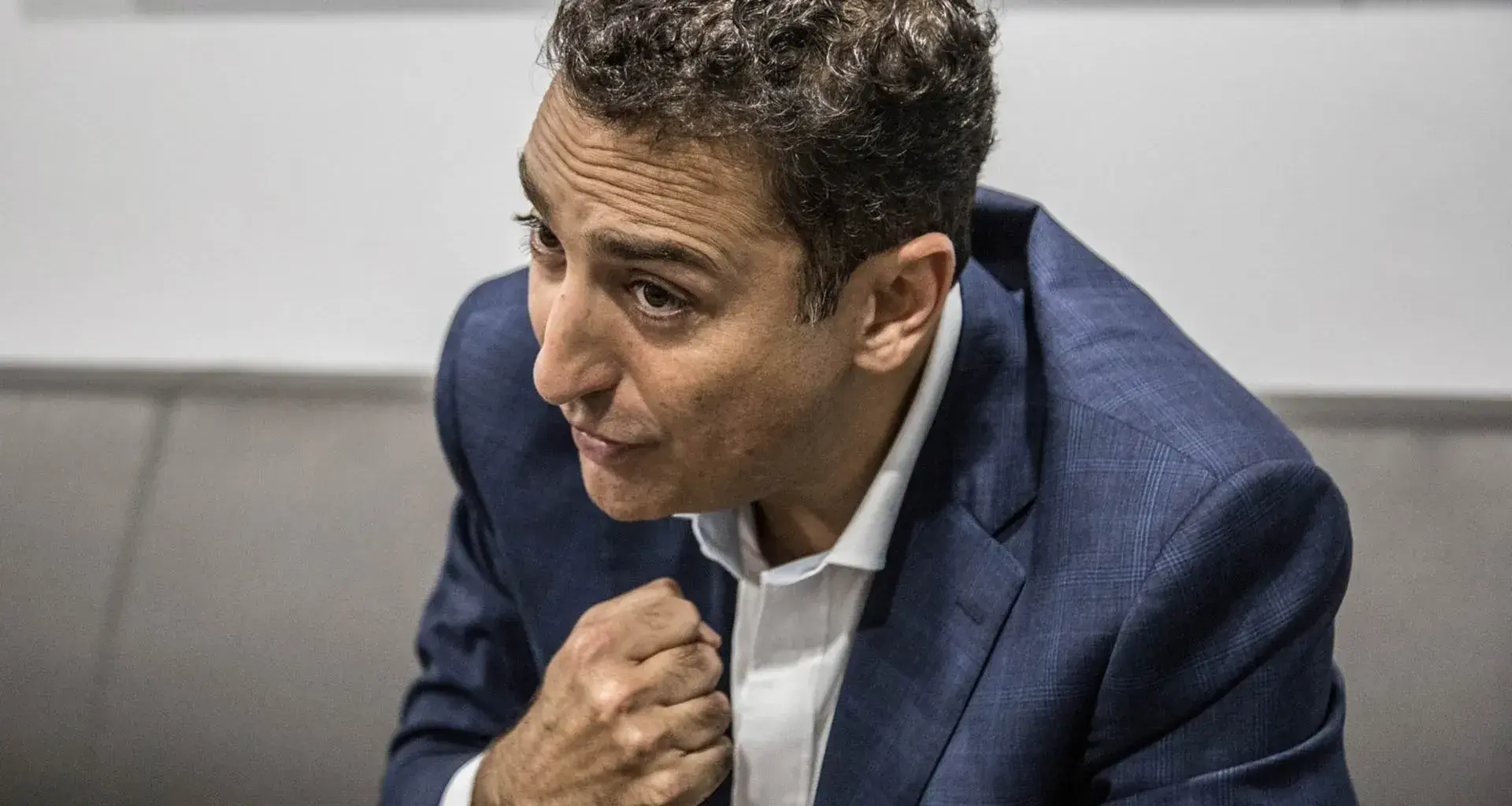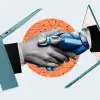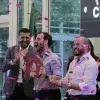On the evening of May 20, 2006, Simon Cohen was in Hong Kong on business when he felt a strange pain in his chest, starting a struggle he had never experienced before.
As he attempted to regain control, the pain escalated until he fell unconscious to the floor. Just before that, a thought entered his mind that would set the course of his life.
“I thought about my parents, daughters, and friends. At the end of the day, I didn’t think about containers, or money, or anything like that,” recalls Cohen.
When Simón opened his eyes, he was in an ambulance with his wife, trying to put up with that unexpected and strange counselor who had come uninvited into his life.
That May 20, Simón initiated a change that would lead his company to be recognized as one of the best to work for under a methodology that he himself developed and to publish a book that caught the attention of the writer Deepak Chopra.
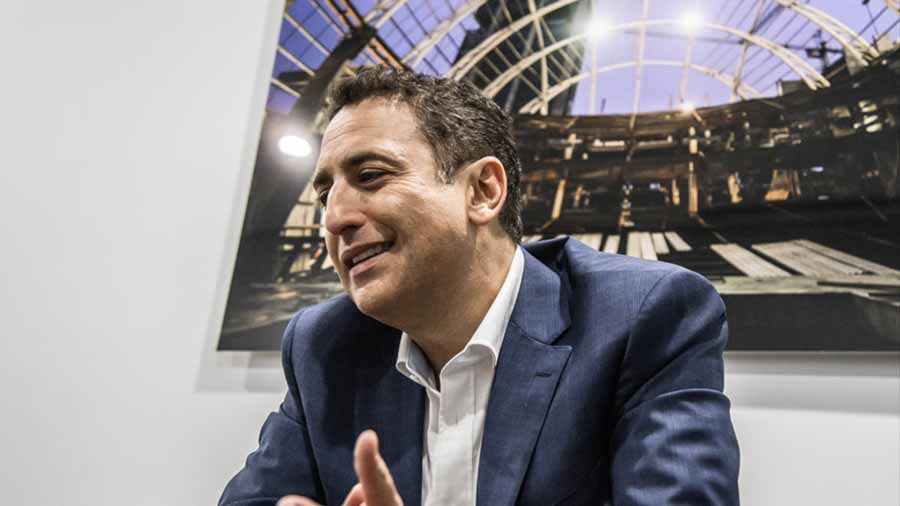
“I feel bad”: the chest pain that changed his life
Simón ran Henco Global, a company he founded in 1998 after working at his dad’s textile company.
One of his main goals was for his logistics company to be successful and to earn the highest possible profits for his family, which years later took him and his wife on a business trip to Hong Kong in China.
Simón remembers that during the week he couldn’t sleep well due to jet lag on top of the pressure and stress of closing the deals that he had traveled to the antipodes, the other side of the world, to make.
“When Friday came, I was exhausted, felt bad and had trouble breathing. I had a cramp from my tail bone to my neck,” he says.
The last engagement of his Friday night was dinner with a group of Japanese people whom Simón rose from his chair to greet when they arrived.
“I feel bad,” were the words that came out of his mouth. About 10 seconds later, he felt what he describes as a blow to the chest that left him unconscious until he woke up in an ambulance.
A week without sleep, of business meetings, and constant fatigue for trying to be the best logistics company had sent him to the hospital on the other side of the world, away from his native Mexico.
“They told me it was Wolff-Parkinson-White syndrome, a double electrical impulse from the heart,” he says.
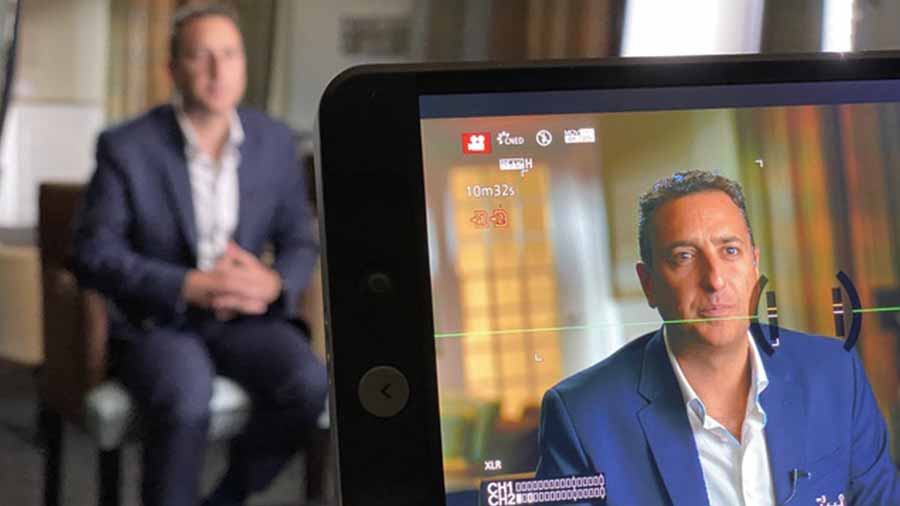
In the darkness of the night, the starlight “illuminated” him
Medicines and treatments became Simón’s “companions” for a year, until one day he decided to run away from everything and go to the beach with his wife and three young daughters.
“I stopped taking the medicines and we headed to the beach. One day, the power went out and my daughters, wife and I went out to see the stars.
“We were lying on a towel, looking up at the sky and searching for shapes in the stars. When I hugged them, I burst into tears and thought, ‘What an idiot, I’m focusing on the wrong goal,” says Cohen.
There and then he made the decision to be the happiest person in the world and seek that goal not only for himself but for those around him, his family, employees, and friends.
“Life is too short to be happy only on weekends,” says Cohen, smiling at the memory of the scene.
“Life is too short to be happy only on weekends.”
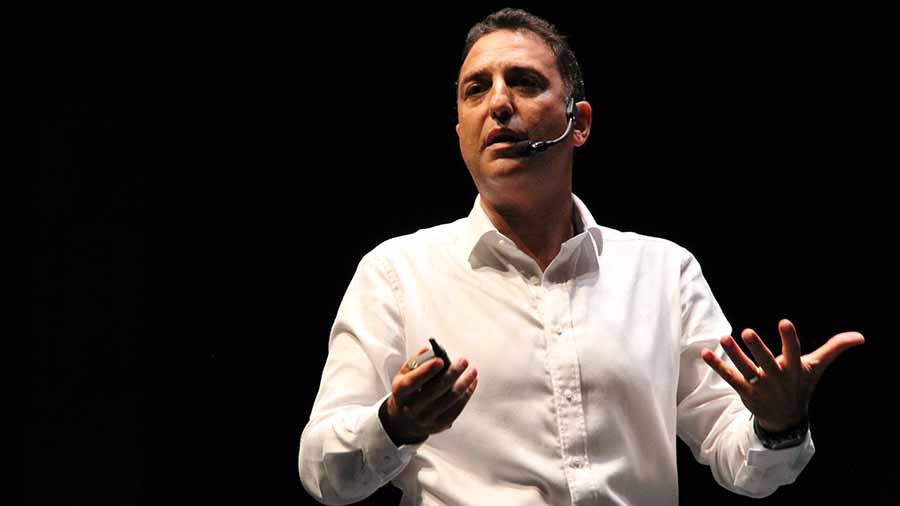
The goal of being a happy company
The trip to the beach came to an end, bringing back a Simon who was eager to change the goals of Henco Global.
His trip inspired him to develop the High Performance, Happy People methodology in which working hard in an environment that promotes happiness has a positive impact on job success.
“The idea was that I wanted to be happy. I needed to be surrounded by happy people, so the only thing I asked my people was that it had to be the best place to work.
“We created a great place where I give you time to sleep well, eat well, and do exercise. We have to work hard and that helps us to be happy,” he says.
His methodology is also based on ideas such as leaders being at the service of their employees and aiming to make them happy with their work.
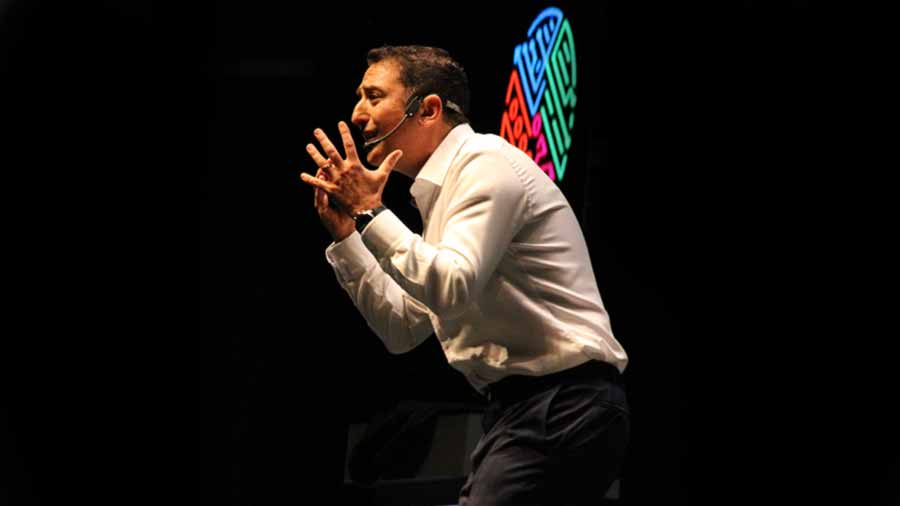
His Happiness Methodology: a Harvard Case Study
Cohen also mentions that wellbeing and high performance are connected, have an impact on each other, and should be promoted in the same way.
“When I told that to my employees, many agreed with the idea. Some got off the boat, but others got on and rowed harder,” he says.
This change led Henco Global to grow exponentially, becoming 10 times larger and also being recognized as one of the 20 best companies to work for in Mexico.
In addition, Harvard University dedicated a case study to the company, telling the story of Henco Global.
“They don’t mention us as the world’s largest company or the richest. That’s a consequence that hopefully one day will come.
“We were rewarded for being good, noble, humble people and for treating clients, suppliers, and competitors with dignity. That’s what gives me the most pride,” he says.
The unforgettable trip in the orange “Beetle”
Coming from a middle-class home, Simón and his parents and siblings experienced several financial crises, such as the one in 1994, the so-called “December Mistake,” which caused strong currency devaluation, bankruptcies, and unemployment in Mexico.
However, his father always supported them and helped them to succeed, says Simón.
When he was 5 years old, his parents took Simón and his older brother José on a journey in an orange Volkswagen 1600.
The “Beetle,” with its unmistakable noise from a 44-horsepower engine, and one of the most popular automobiles at the time, left Mexico City seeking better fortune in Monterrey.
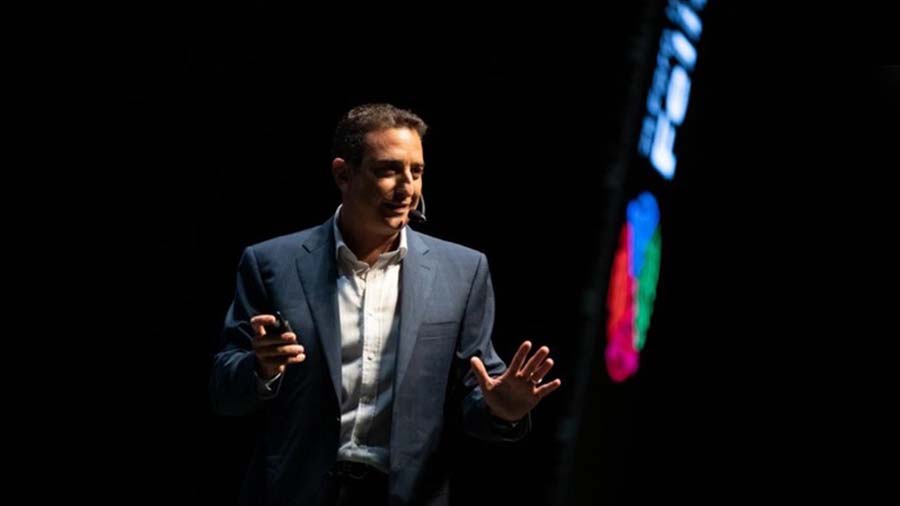
Early-morning swimming and his Olympic dream
Simón, José, and their other brother Daniel, who was born after their arrival in Monterrey, studied at Tecnológico de Monterrey.
Simón studied International Business and joined the school swimming team on his doctor’s recommendation, after suffering from allergies and asthma.
Cohen would go to campus at 5 a.m. every day to train, change for his 7 a.m. classes, and return to training at 1 p.m. between classes.
His goal was to qualify for the Olympics, but when he was told that he wouldn’t be able to, he decided to dedicate his time to his father’s company.
Being “focused” led him to success... and to the brink of death
Simón started working in for his dad, who asked him to take care of exports.
“The services were terrible, it was done all by hand and it was very difficult to handle global logistics,” he recalls.
Seeking to solve this problem after a call from a German supplier looking for a contact in Monterrey, Simón decided that it was time to start his own company.
“During the call (the supplier) says to me ‘Do you know anyone who’s good at networking?’ And I say, ‘Yes, I am.’ I didn’t know how to start. I was a 22-year-old boy.
“That’s where the magic of the Tec comes in because I didn’t know who my friends were related to. I asked for their help, and it turned out that one of their dads was the CEO of Vitro, another was a manager at CEMEX, another in Soriana. We created an incredible list of contacts,” he says.
Simón Cohen would dedicate his life to growing his company, transporting containers to several countries and continents, but at a high price, which was unknown to him until that night in May 2006.
“I wanted to do well. I forgot the basics of life. Eat well, sleep well, exercise, and spend time with your family,” Simón recalls.
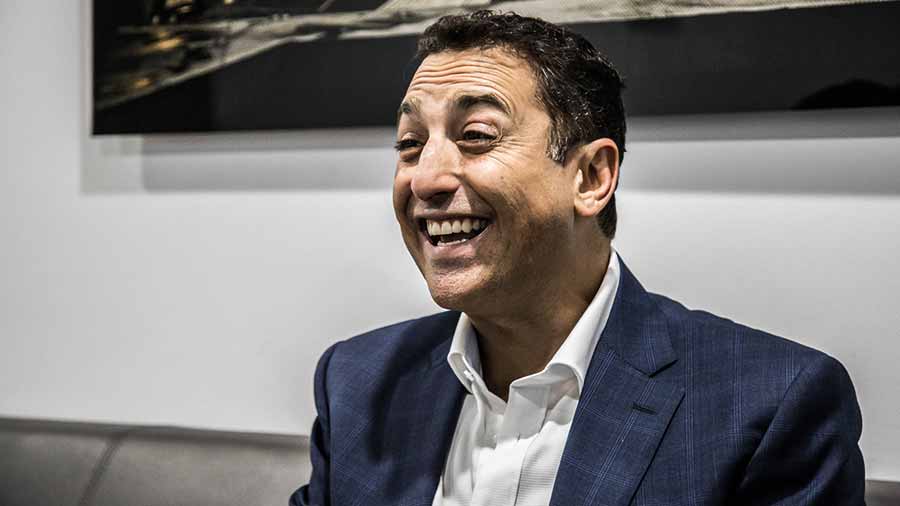
He tells his story in his book, PLENO
In addition to joining the board of Tecmilenio, one of Tec de Monterrey’s institutions, Simón became a lecturer and published his book PLENO (Fulfilment).
He found this name for his manuscript when he remembered the feeling that filled him that night when he gazed at the stars with his family.
“It’s a really cool, simple story, that includes experiences and anecdotes, which you can read in 4 or 5 hours,” says Cohen.
“Give me a number between 30 and 200,” he asks during the interview and after hearing the number 46 he opens the book on that page.
“Life gives us a limited amount of energy each morning and we have the right to choose how and where we use it, to fight and be destructive or to reconcile ourselves and be creative,” he reads.
His interview with Deepak Chopra
Simón was also recently invited to talk to prominent writer Deepak Chopra for the launch of his book in English.
“If you want to know the secrets of a joyful energetic body, a loving and compassionate heart, a thoughtful creative mind, and the lightness of being, this book is an excellent guide,” said Chopra.
Cohen mentioned that the proceeds from the book will be used to help someone of his family’s choosing.
For example, previously they helped a boy who required a bone marrow transplant and needed 150,000 Euros (3.5 million pesos) for the operation.
“Everything is going to a good cause. We’re talking about children with cancer or children who need surgery,” he said.
In addition to the phrases included on each of the pages, Cohen presents philosophical topics and talks about how he came to develop his methodology and the challenges he has faced.
The book is available on Amazon in physical format and also as an eBook for Kindle.
{"preview_thumbnail":"/sites/default/files/styles/video_embed_wysiwyg_preview/public/video_thumbnails/mMvJXqkOMJE.jpg?itok=Q4KwFqBm","video_url":"https://www.youtube.com/watch?v=mMvJXqkOMJE","settings":{"responsive":1,"width":"854","height":"480","autoplay":0},"settings_summary":["Embedded Video (Adaptable)."]}
Cohen doesn’t hesitate to say that his life took a turn that May when his heart forced him to rediscover himself.
“I don’t want to be the man who sells the most containers in the world, nor do I want to be the richest man on the planet.
“I want our culture to go beyond that, to make more people happy. We want there to be more stable and peaceful people in this world,” he concludes.
READ MORE:

